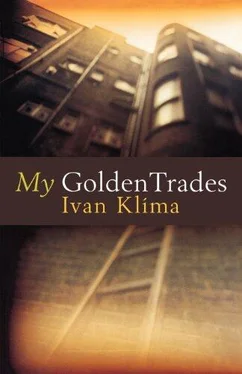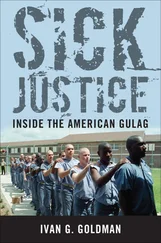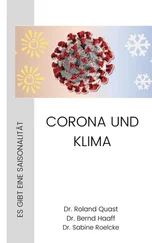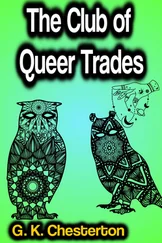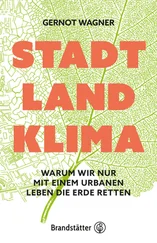Ivan Klima - My Golden Trades
Здесь есть возможность читать онлайн «Ivan Klima - My Golden Trades» весь текст электронной книги совершенно бесплатно (целиком полную версию без сокращений). В некоторых случаях можно слушать аудио, скачать через торрент в формате fb2 и присутствует краткое содержание. Год выпуска: 1998, Издательство: Granta UK, Жанр: Современная проза, на английском языке. Описание произведения, (предисловие) а так же отзывы посетителей доступны на портале библиотеки ЛибКат.
- Название:My Golden Trades
- Автор:
- Издательство:Granta UK
- Жанр:
- Год:1998
- ISBN:нет данных
- Рейтинг книги:4 / 5. Голосов: 1
-
Избранное:Добавить в избранное
- Отзывы:
-
Ваша оценка:
- 80
- 1
- 2
- 3
- 4
- 5
My Golden Trades: краткое содержание, описание и аннотация
Предлагаем к чтению аннотацию, описание, краткое содержание или предисловие (зависит от того, что написал сам автор книги «My Golden Trades»). Если вы не нашли необходимую информацию о книге — напишите в комментариях, мы постараемся отыскать её.
My Golden Trades — читать онлайн бесплатно полную книгу (весь текст) целиком
Ниже представлен текст книги, разбитый по страницам. Система сохранения места последней прочитанной страницы, позволяет с удобством читать онлайн бесплатно книгу «My Golden Trades», без необходимости каждый раз заново искать на чём Вы остановились. Поставьте закладку, и сможете в любой момент перейти на страницу, на которой закончили чтение.
Интервал:
Закладка:
The barracks of the special operations team was next to the street where I spent my childhood, so I found it with no difficulty. The commander of special operations was small and stocky, almost bald, and he wore glasses. His tunic was undone and underneath it I could see striped braces. He had a fatherly expression.
Yes indeed, he had seen my driver's licence, and yes, he even remembered that there were some keys with it. Three, wasn't it? Two? It was possible. One was bigger than the other. However, since I hadn't requested them for so long… it was now being dealt with at Vinohrady. On Peace Square. Did I know where the station was? Perhaps he'd better give me exact directions.
He backed up to a large map of Prague that hung on the wall behind him.
I said that I had driven around the square almost every day for fifteen years, and I was last there when the railway workers had held their ball.
Yes, that was right: the railway workers' ball, that would have been three weeks ago, wouldn't it? Well, the ballroom dancing season was just about over, and if I was going to go dancing — and he circumspectly let the word that again had forced its way on to his tongue, slip from his lips — I would have to hurry. He shook my hand. When I was already walking through the door, he asked again, with concern in his voice, whether I was sure I'd find the station on the square.
The station was where it was supposed to be, but of course they had neither my keys, nor my driver's licence.
Crime was on the increase, even though the ballroom-dancing season was coming to an end. The paedophile— whom no one, evidently, was looking for — was still at large in our area. A young medical student was raped and strangled on an international express train. And there were stories going round that the director of the automobile factory had given away to influential comrades or, at least, sold for the price of scrap a wagon-load of cars, which naturally did not belong to him.
I paid a visit to a friend of mine, a playwright who alone among my colleagues can publish what he writes and therefore has access to the comrades. He claimed that they had transferred the director to a less responsible position, and that things were beginning to get better. During my visit, a car stopped outside the house and a woman in gardening clothes jumped out.
As I understood it, the woman taught my friend's daughter. The clothes in which she arrived were 'emergency' clothes. She had been wearing them when she returned from her cottage the previous evening — and now they were all she had to wear. Over the weekend, thieves had burgled her flat. What they hadn't taken they had destroyed, systematically. They had pulled the drawers out of the cupboards and dressers and smashed them. They had torn up her fabrics or poured varnish over them; they had burned her passport and bank-books and the parquet flooring, broken her china, slashed her pictures. They had drunk her spirits, and what they didn't drink, they poured over her Persian rug.
It was as though they were taking revenge on her for something, as though they enjoyed the act of destruction more than theft. The police guessed that there was a whole gang of them at work. The noise of the destruction must have been heard in the building, and her neighbours immediately beneath her and on each side of her were home all weekend, and didn't even come out of their flats to see who was making such a racket. What kind of people were they? The things the thieves carried off must have half filled a large truck. The tears in her eyes as she told the story were not only for the vandalism, but for the indifference of her neighbours, who did nothing to protect
her property, and for the apathy of the investigators, who were unmoved by the wasteland her flat had become.
It occurred to me to ask what she taught.
She taught Marxism.
It didn't feel as though I missed being able to drive but oddly enough, at night, highways worked their way into my dreams with increasing frequency. I could read the names of exotic places on the road signs, or sometimes only the number of the roads that stretched through the prairies and clambered up mountainsides. The car was utterly unlike any I had ever driven; I was giving a lift to a girl utterly unlike any girl I had ever given a lift to, and I knew that we would make love as soon as I found an appropriate place. But could such a place be found on the highway? I turned on to a road that led into a wood, but that didn't seem deserted enough either; the trees were tall and widely spaced and offered no shelter, no real hiding place. I drdve out of the wood and on to an empty plateau of sand. There was not a living soul in sight, and even the road vanished. I was still driving, and as the sand crunched under the wheels I felt the girl's naked body pressing against me. She had taken off her clothes. I stopped the car, hastily reclined the seats and transformed the interior into a perfect bed.
As we were lying in an embrace I realized that the car, now driven by no one, had begun to move forwards. I raised myself up, and through the window I saw the edge of a precipice. We were moving towards it. I wanted to grab the wheel and slam on the brakes, but the seats were in my way. There was nothing I could do. The car moved right to the edge of the precipice and I could see the depths below me. I screamed in terror, but no one heard
me. I reached out for the girl, but felt only emptiness. She was no longer in the car, and I was alone as I plunged into the abyss.
When I told the dream to my non-existent psychoanalyst, he persuaded me that it was not about how I longed to drive a car again, nor about how I desired to make passionate love to a strange woman. My dream was about the state of disinheritance I found myself in. The girl symbolized the world beyond my family, my craving for the intimacy of other people. At the moment when real danger appeared and the abyss opened up before me, the girl, the symbol of that distant community, vanished — what remained was an overwhelming solitude.
Two weeks later, I was invited to the Traffic Inspectorate where a short, slightly built major was sitting behind his desk. 'Ah, it's you,' he said when he had studied my summons. He leaned over and pretended that he was looking for something before opening a file that he had on his desk. 'Now I wonder how these got here?' he said, taking out my keys. He held them between his thumb and forefinger, raised them up with a look of bemused curiosity, and jingled them. 'I believe these are the keys to your car.'
He handed them to me and then began to study the documents in the file. 'My goodness, the things I'm reading about you here,' he said. 'On the evening of 20 February, one of our squad cars followed you along the embankment for a while, and between the Charles Bridge and the Iron Bridge you committed five serious breaches of the Traffic Act. At the National Theatre you even ran a red light.' He looked at me disapprovingly; perhaps he actually believed what he was saying. 'Our comrades also administered a
breathalyser test,' and he pulled the familiar tube out of the file, held it between finger and thumb and observed, as I had, its colourless state. 'The results, as you know, were negative.' He put the tube back in the file. 'Even so, the comrades justifiably held your driver's licence. Five offences — that's too many. Was something upsetting you?'
He fell silent, as if awaiting a meaningful answer to his meaningless question. 'It happens,' he said. 'The driver may be sober, but because he's upset he can't concentrate, and instead of stopping and getting out of the car, he goes on driving and becomes a threat to other road users.' Once again he fell silent. When I still had nothing to say, he asked if I were willing to be re-tested.
Читать дальшеИнтервал:
Закладка:
Похожие книги на «My Golden Trades»
Представляем Вашему вниманию похожие книги на «My Golden Trades» списком для выбора. Мы отобрали схожую по названию и смыслу литературу в надежде предоставить читателям больше вариантов отыскать новые, интересные, ещё непрочитанные произведения.
Обсуждение, отзывы о книге «My Golden Trades» и просто собственные мнения читателей. Оставьте ваши комментарии, напишите, что Вы думаете о произведении, его смысле или главных героях. Укажите что конкретно понравилось, а что нет, и почему Вы так считаете.
